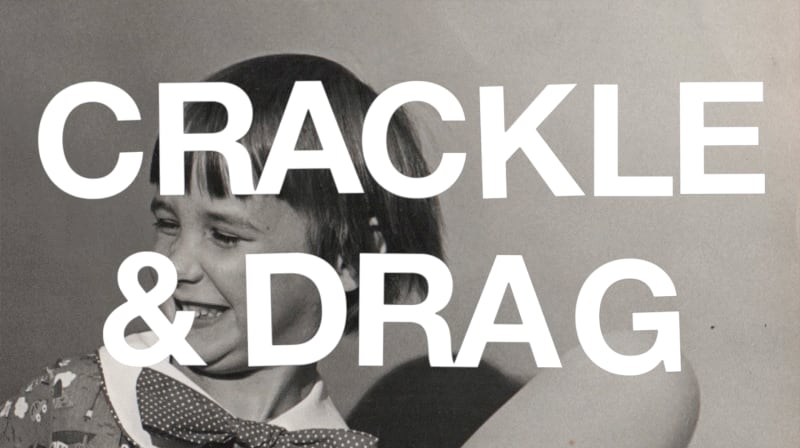Crackle & Drag
Crackle & Drag is a film-poem created by visual artist TR Ericsson. A haunting epitaph of maternal and filial love structured around a series of biographical vignettes and narrated by several audio voice recordings left on the artist’s answering machine by his late mother in the mid 90's and early 2000's.
The film-poem (also called the poetic avant-garde film, verse-film or verse-documentary) is a label first applied to American avant-garde films released after World War II. During this time, the relationship between film and poetry was debated. James Peterson in Dreams of Chaos, Visions of Order said, "In practice, the film poem label was primarily an emblem of the avant-garde's difference from the commercial narrative film."Film-poems are considered "personal films" and are seen "as autonomous, standing apart from traditions and genres". They are "an open, unpredictable experience" due to eschewing extrinsic expectations based on commercial films. Peterson said, "The viewer's cycles of anticipation and satisfaction derive primarily from the film's intrinsic structure." The film-poems are personal as well as private: "Many film poems document intimate moments of the filmmaker's life."
To throw an audience into “darkness” is one of the most powerful and sadistic things a film-maker can do. This film is about the death of a woman, the suicide note she never wrote. Who was she? Her voice is like the grain of an image, the fabric of the film, it's presence reminds us of the chaos hovering over our lives and any attempt we make to communicate to one another across time and space. In this darkness a question takes form “what can we bear to know of the past, and what does this mean for the future?”
